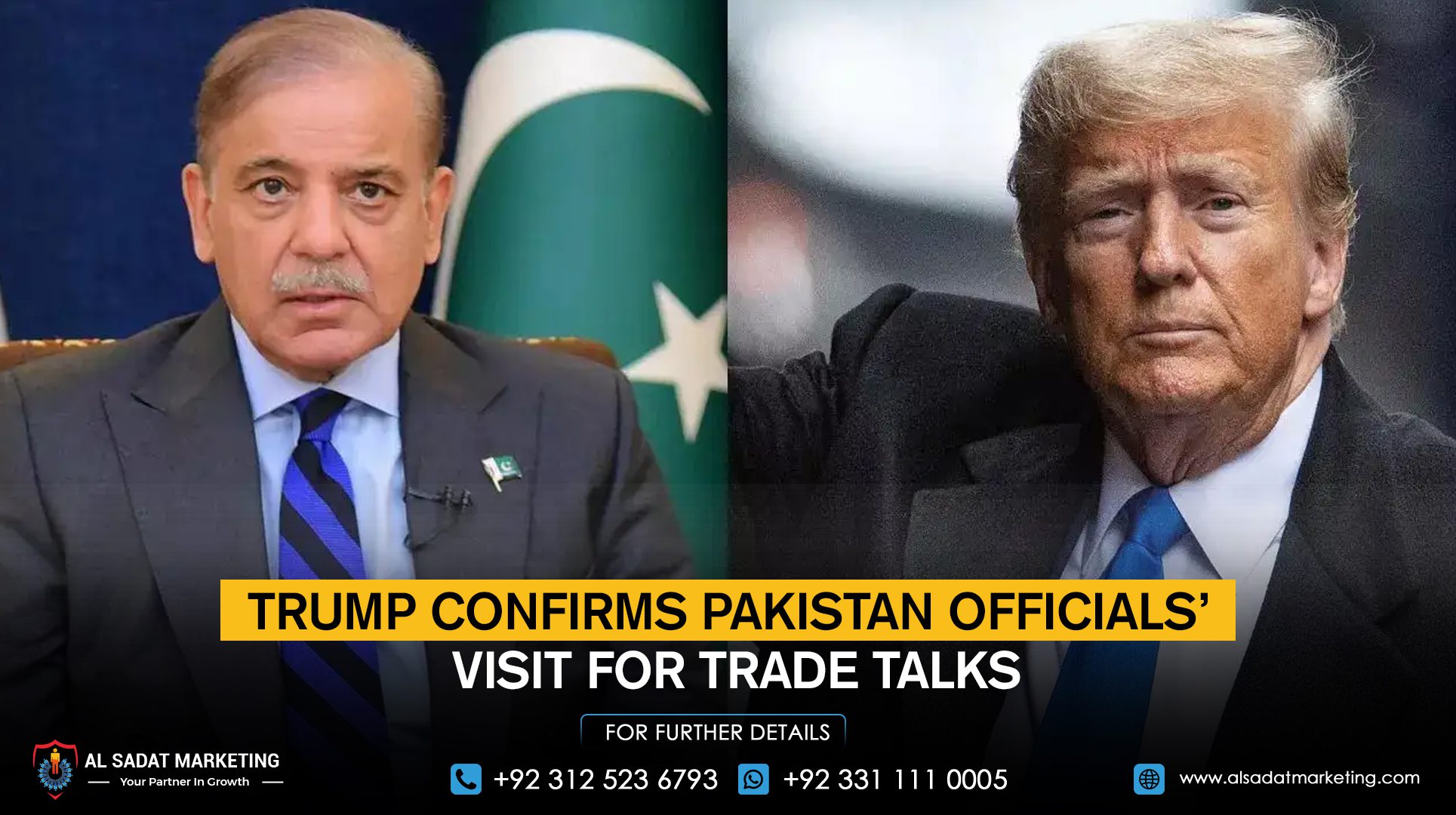U.S. President Donald Trump has confirmed that a high-level Pakistani delegation will visit the United States next week to engage in critical trade negotiations. The talks are set against the backdrop of a potential 29% tariff on Pakistani exports, stemming from new American trade policies aimed at addressing global trade imbalances. The United States had announced the temporary suspension of these tariffs for 90 days to allow diplomatic efforts to resolve trade disparities.
Pakistan currently maintains a trade surplus of $3 billion with the U.S., putting it under scrutiny as Washington recalibrates its global trade strategy. In response, Prime Minister Shehbaz Sharif convened a high-level review meeting on April 9 in Islamabad, which led to the decision to dispatch a delegation of senior officials, key business leaders, and top exporters to Washington. The delegation’s objective is to improve bilateral trade ties and explore avenues for mutual economic growth.
While addressing reporters at Joint Base Andrews, President Trump linked trade prospects to peace in South Asia, stating that he would not pursue trade deals with either India or Pakistan if tensions between the two nations escalate into armed conflict. His comments follow a period of severe military confrontation between India and Pakistan, marked by drone strikes, artillery exchanges, and air combat.
Also Read: Rajgan Mosque: The Forgotten Mughal-Era Gem by Khanpur Lake
Parallel to talks with Pakistan, the U.S. is making significant progress toward finalizing a trade deal with India. Indian Trade Minister Piyush Goyal recently visited Washington, and both sides are targeting an interim agreement by early July. India, too, faces high tariffs of up to 26% on its exports. As part of the potential deal, India may open over $50 billion in government contracts to American companies, offering substantial commercial opportunities.
In its trade negotiations, Pakistan has proposed a zero-tariff bilateral agreement covering selected sectors of mutual interest. This move aims to broaden trade collaboration and present Pakistan as a strong regional alternative for U.S. business interests in South Asia.
The first round of Pakistan-U.S. trade discussions began on May 30 with a phone call between Finance Minister Muhammad Aurangzeb and U.S. Trade Representative Jamieson Greer. According to Finance Ministry Advisor Khurram Schehzad, the call was productive, and both sides agreed to begin technical-level negotiations in the near future.
Pakistan is also preparing to offer American investors a range of incentives in the mining sector, including lease grants and opportunities for joint ventures, particularly in Balochistan. Commerce Minister Jam Kamal highlighted the country’s untapped resources and investment potential for U.S. firms in mining and hydrocarbons.
Additionally, Pakistan plans to boost imports from the U.S., especially in cotton and edible oils, to address domestic shortages. Kamal noted that previous American administrations prioritized India in trade matters, but under Trump, Pakistan is being recognized as a serious trade partner.
The upcoming federal budget is expected to include tariff reductions aimed at attracting foreign investment and improving export competitiveness. While the U.S. has yet to specify its key sectors or trade concerns, officials in Islamabad remain optimistic about achieving a mutually beneficial trade agreement.










